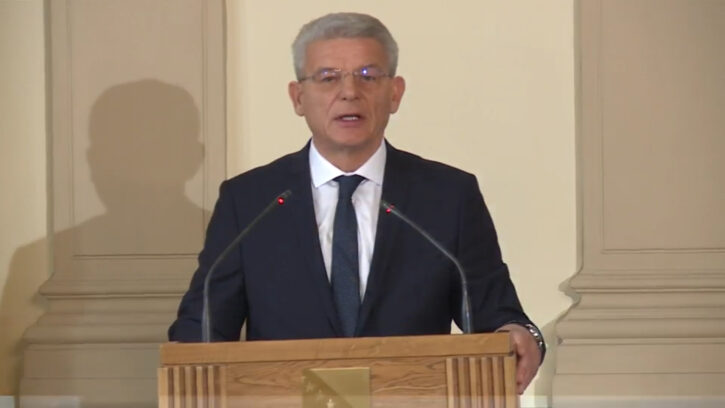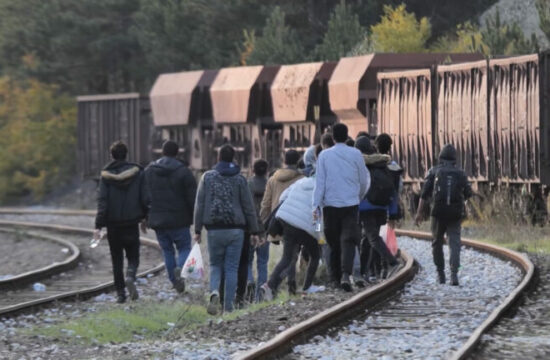
Bosniak member of the tripartite Presidency Sefik Dzaferovic welcomed the amendment to the EU Parliament's 2018 report on Serbia condemning the repeated denial of the 1995 Srebrenica.
“I welcome the European Parliament's decision to adopt the amendment to Serbia's Progress Report, which regrets the repeated denial of genocide in Srebrenica by some Serbian officialsm” Dzaferovic said.
In its 2018 Commission report on Serbia, the EU Parliament said on Thursday that it “regrets the repeated denial of the Srebrenica genocide by some Serbian authorities,” and reminded them that fully cooperating with the International Criminal Tribunal for the former Yugoslavia, and its successor the International Residual Mechanism for Criminal Tribunals, also implies fully accepting and implementing its rulings and decisions.
Dzaferovic said it was vital that the amendment stressed that recognising the Srebrenica genocide is a crucial step on Serbia's EU accession process.
Professor at the Sarajevo Philosophy Faculty Husnija Kamberovic told the Fena news agency that the EU always insisted that dealing with the past is important for the EU accession process.
“The Srebrenica genocide is an undeniable fact, not just because the International Court of Justice confirmed it, but because we have hundreds of books, testimonies, confessions, recordings and photos of the event,” Kamberovic said. “I think that the said amendment is an indicator to all the countries of the Western Balkans that we must all face our pasts if we wish to embrace the European values and want to make progress on our EU path.”
He added that if we continue carrying our past with us, “it will drag us down and away from our European path.”
On July 11, 1995, Bosnian Serb forces overran the eastern Bosnian enclave and rounded up the town’s Muslim Bosniaks, separated men from women and little children and systematically executed more than 8,000 men and boys.
Two international courts, The International Criminal Tribunal for the Former Yugoslavia (ICTY) and the International Court of Justice (ICJ) later ruled that the massacre was an act of genocide. International and regional courts have sentenced 45 people for what happened in Srebrenica to a total of more than 700 years behind bars.




